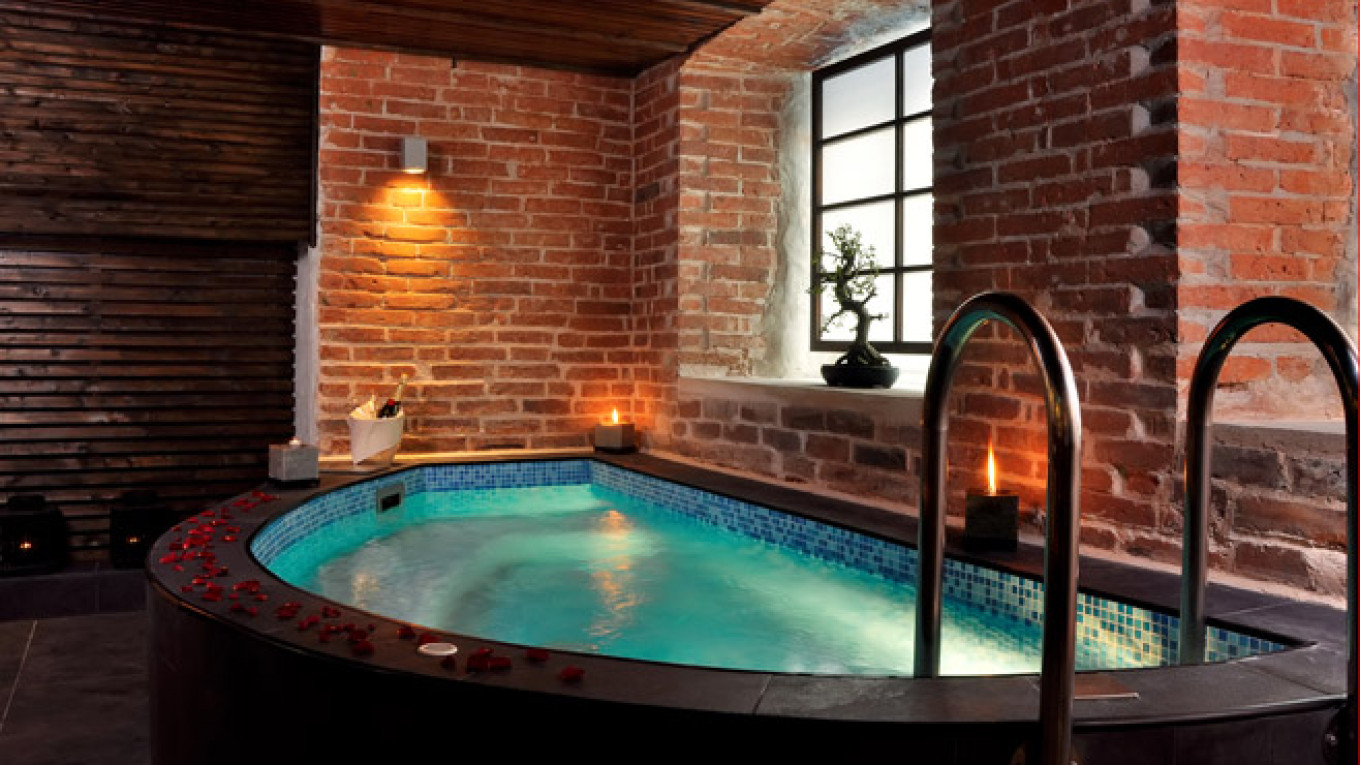The government has started divvying up state-owned Crimean health retreats among Russian agencies and companies, though many of them are in no fit state to receive guests, Kommersant reported Monday.
"After the referendum in Crimea, all government property on the territory went to the [new Russian] republic. Now the Crimean authorities are transferring institutional health retreats and sanatoriums to the relevant Russian ministries and departments," a representative of the administration of Deputy Prime Minister Dmitry Kozak, who is in charge of assimilating Crimea into the Russian state, told Kommersant.
With its annexation of the Crimean peninsula from Ukraine in March, Russia gained 467 health spas, 232 hotels, 92 children's health camps and 517 kilometers of beach previously owned by the Ukrainian government, the report said. About 31 billion rubles ($882 million) of state funds are to be spent on developing the region's tourism infrastructure.
The state currently owns 180 to 190 health resorts, but about half of them are in a state of disrepair, a representative of the Crimean resorts and tourism department told Kommersant. He said the ones that are in poor condition could be given to buyers who are prepared to take on their repair, while the other half could be transferred to government agencies or state-owned companies.
The Interior Ministry announced last week that it had been handed control of five health resorts, including the Izumrud in Yevpatoria, the report said. State-owned monopoly Russian Railways, whose chief, Vladimir Yakunin, is a close ally of President Vladimir Putin, will take over properties currently run by Crimean Railways, an unidentified government source said.
About another 100 health retreats will be transferred to ministries and large state companies, the report said.
The Federal Tourism Agency in May urged state-owned corporations and big businesses to treat their employees to vacations in Crimea to prevent a collapse of the peninsula's tourism industry, which has been hit by the Ukraine crisis and the annexation. Hoteliers on the peninsula have said that up to 70 percent of their clients used to come from Ukraine.
The Culture Ministry said that it works with certain health resorts, but would not take ownership of them, while the Energy Ministry and Russian Post both said that they have no plans to either manage Crimea resorts or to send their staff there on vacation.
State oil producer Rosneft said only that Crimea is included in its program for organizing employees' holidays.
Russian Railways declined to comment.
See also:
Crimea and Sochi See Future as Gambling Centers
Contact the author at m.lammey@imedia.ru
A Message from The Moscow Times:
Dear readers,
We are facing unprecedented challenges. Russia's Prosecutor General's Office has designated The Moscow Times as an "undesirable" organization, criminalizing our work and putting our staff at risk of prosecution. This follows our earlier unjust labeling as a "foreign agent."
These actions are direct attempts to silence independent journalism in Russia. The authorities claim our work "discredits the decisions of the Russian leadership." We see things differently: we strive to provide accurate, unbiased reporting on Russia.
We, the journalists of The Moscow Times, refuse to be silenced. But to continue our work, we need your help.
Your support, no matter how small, makes a world of difference. If you can, please support us monthly starting from just $2. It's quick to set up, and every contribution makes a significant impact.
By supporting The Moscow Times, you're defending open, independent journalism in the face of repression. Thank you for standing with us.
Remind me later.


